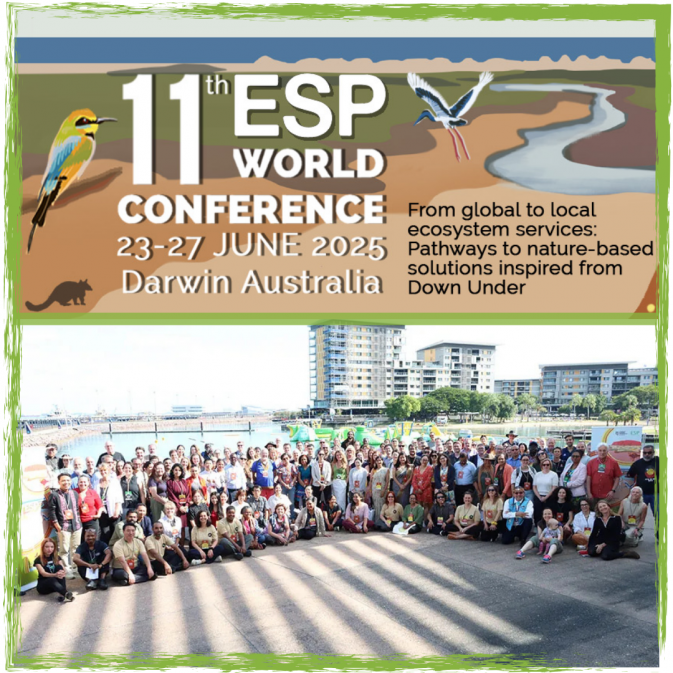SELINA at the 11th ESP World Conference in Darwin, Australia
Between 23–27 June 2025, the 11th Ecosystem Services Partnership World Conference (ESP11) brought together around 250 delegates from across the world in Darwin, Australia. Hosted at the Darwin Convention Centre, the event focused on the integration of local and indigenous knowledge into the understanding and management of ecosystem services, as well as advancing nature-based solutions through cross-sectoral collaboration.
The conference was held under the theme “From global to local ecosystem services: pathways to Nature-based Solutions inspired from Down Under”, and featured a diverse programme including keynote speeches, parallel sessions, poster presentations and cultural performances. With Australia being the longest continuously inhabited continent, indigenous perspectives were deeply embedded in both the programme and spirit of the event.
SELINA was represented by Pensoft Publishers, its Communication and Dissemination partner. At the Pensoft booth, attendees had the opportunity to explore informative materials and recent updates not only from SELINA, but from the REST-COAST project as well.
A key highlight of SELINA’s presence at the conference was a dedicated session led by Prof. Dr. Benjamin Burkhard (from Leibniz University Hannover), who serves as both the project’s Coordinator and Editor-in-Chief of One Ecosystem, an open-access journal published by Pensoft. The session focused on the journal’s open science approach, which promotes transparency, data sharing, and interdisciplinary research by opening up diverse research outputs to broader audiences. Prof. Burkhard provided insights into the principles of open science, editorial processes, and publishing strategies, particularly aimed at early career researchers.
By participating at the ESP11, SELINA further reinforced its role as a project working on addressing the pressing environmental and societal challenges, from biodiversity loss to climate change and sustainable land use, through evidence-based and nature-positive solutions.
